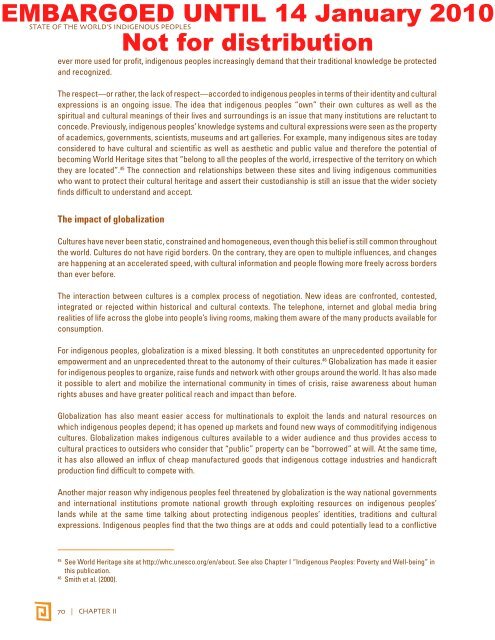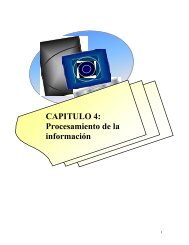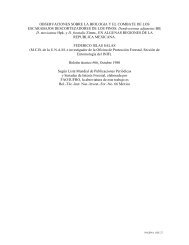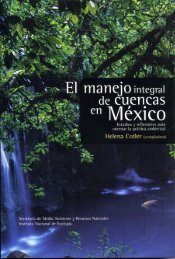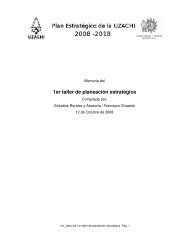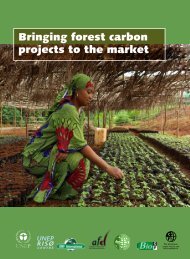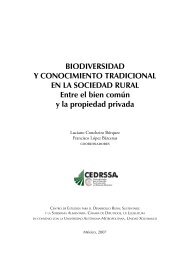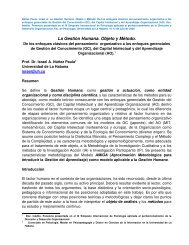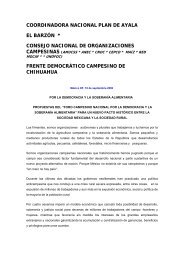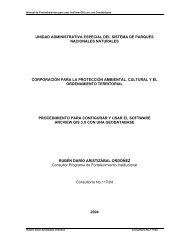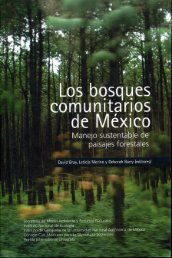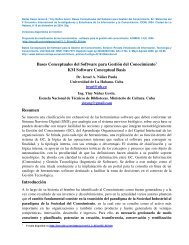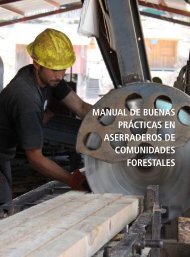STATE OF THE WORLD's INDIGENOUs PEOpLEs - CINU
STATE OF THE WORLD's INDIGENOUs PEOpLEs - CINU
STATE OF THE WORLD's INDIGENOUs PEOpLEs - CINU
- No tags were found...
Create successful ePaper yourself
Turn your PDF publications into a flip-book with our unique Google optimized e-Paper software.
EMBARGOED UNTIL 14 January 2010<strong>STATE</strong> <strong>OF</strong> <strong>THE</strong> WORLD’S INDIGENOUS PEOPLESNot for distributionever more used for profit, indigenous peoples increasingly demand that their traditional knowledge be protectedand recognized.The respect—or rather, the lack of respect—accorded to indigenous peoples in terms of their identity and culturalexpressions is an ongoing issue. The idea that indigenous peoples “own” their own cultures as well as thespiritual and cultural meanings of their lives and surroundings is an issue that many institutions are reluctant toconcede. Previously, indigenous peoples’ knowledge systems and cultural expressions were seen as the propertyof academics, governments, scientists, museums and art galleries. For example, many indigenous sites are todayconsidered to have cultural and scientific as well as aesthetic and public value and therefore the potential ofbecoming World Heritage sites that “belong to all the peoples of the world, irrespective of the territory on whichthey are located”. 45 The connection and relationships between these sites and living indigenous communitieswho want to protect their cultural heritage and assert their custodianship is still an issue that the wider societyfinds difficult to understand and accept.The impact of globalizationCultures have never been static, constrained and homogeneous, even though this belief is still common throughoutthe world. Cultures do not have rigid borders. On the contrary, they are open to multiple influences, and changesare happening at an accelerated speed, with cultural information and people flowing more freely across bordersthan ever before.The interaction between cultures is a complex process of negotiation. New ideas are confronted, contested,integrated or rejected within historical and cultural contexts. The telephone, internet and global media bringrealities of life across the globe into people’s living rooms, making them aware of the many products available forconsumption.For indigenous peoples, globalization is a mixed blessing. It both constitutes an unprecedented opportunity forempowerment and an unprecedented threat to the autonomy of their cultures. 46 Globalization has made it easierfor indigenous peoples to organize, raise funds and network with other groups around the world. It has also madeit possible to alert and mobilize the international community in times of crisis, raise awareness about humanrights abuses and have greater political reach and impact than before.Globalization has also meant easier access for multinationals to exploit the lands and natural resources onwhich indigenous peoples depend; it has opened up markets and found new ways of commoditifying indigenouscultures. Globalization makes indigenous cultures available to a wider audience and thus provides access tocultural practices to outsiders who consider that “public” property can be “borrowed” at will. At the same time,it has also allowed an influx of cheap manufactured goods that indigenous cottage industries and handicraftproduction find difficult to compete with.Another major reason why indigenous peoples feel threatened by globalization is the way national governmentsand international institutions promote national growth through exploiting resources on indigenous peoples’lands while at the same time talking about protecting indigenous peoples’ identities, traditions and culturalexpressions. Indigenous peoples find that the two things are at odds and could potentially lead to a conflictive45See World Heritage site at http://whc.unesco.org/en/about. See also Chapter I “Indigenous Peoples: Poverty and Well-being” inthis publication.46Smith et al. (2000).70 | CHAPTER II


